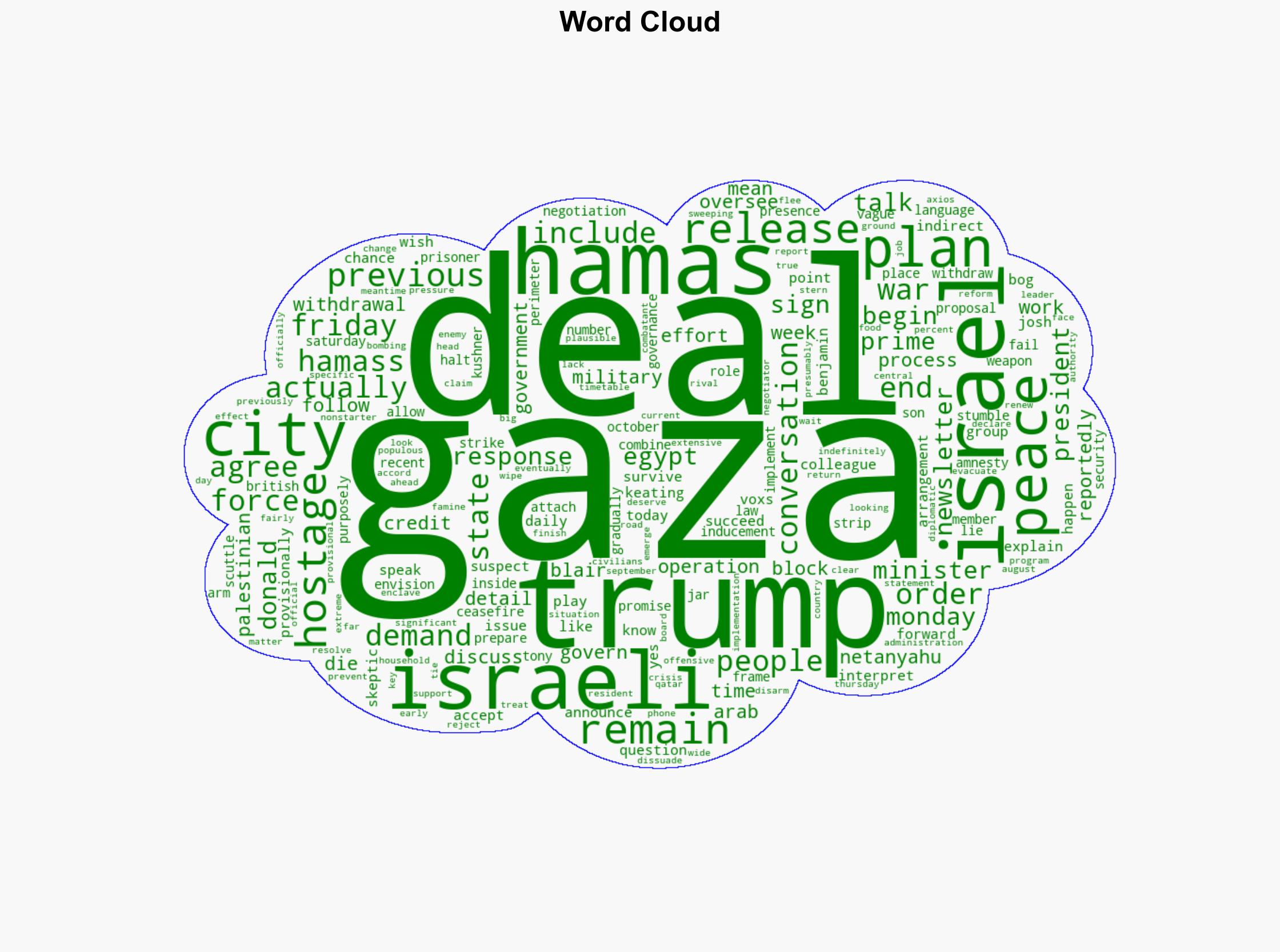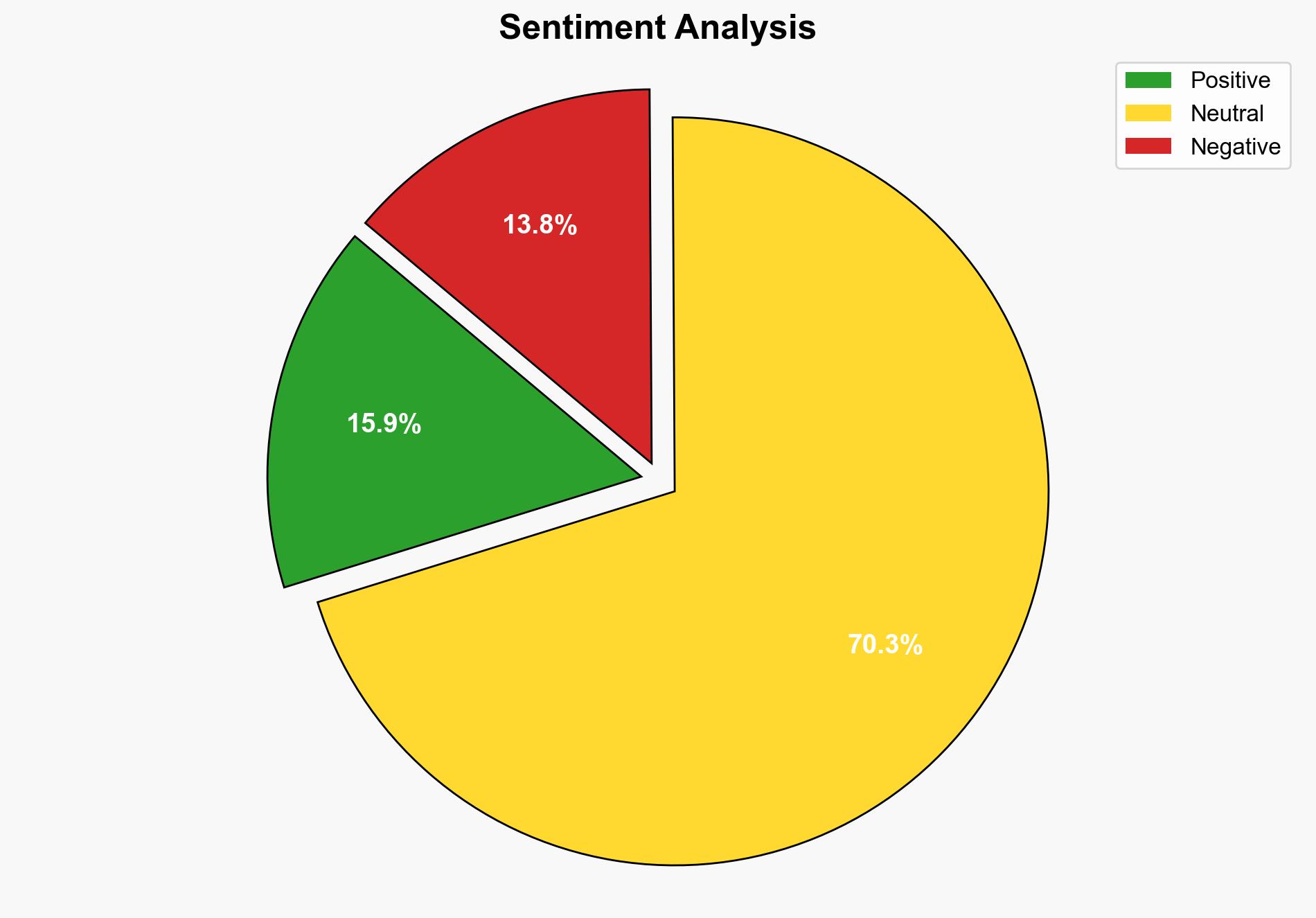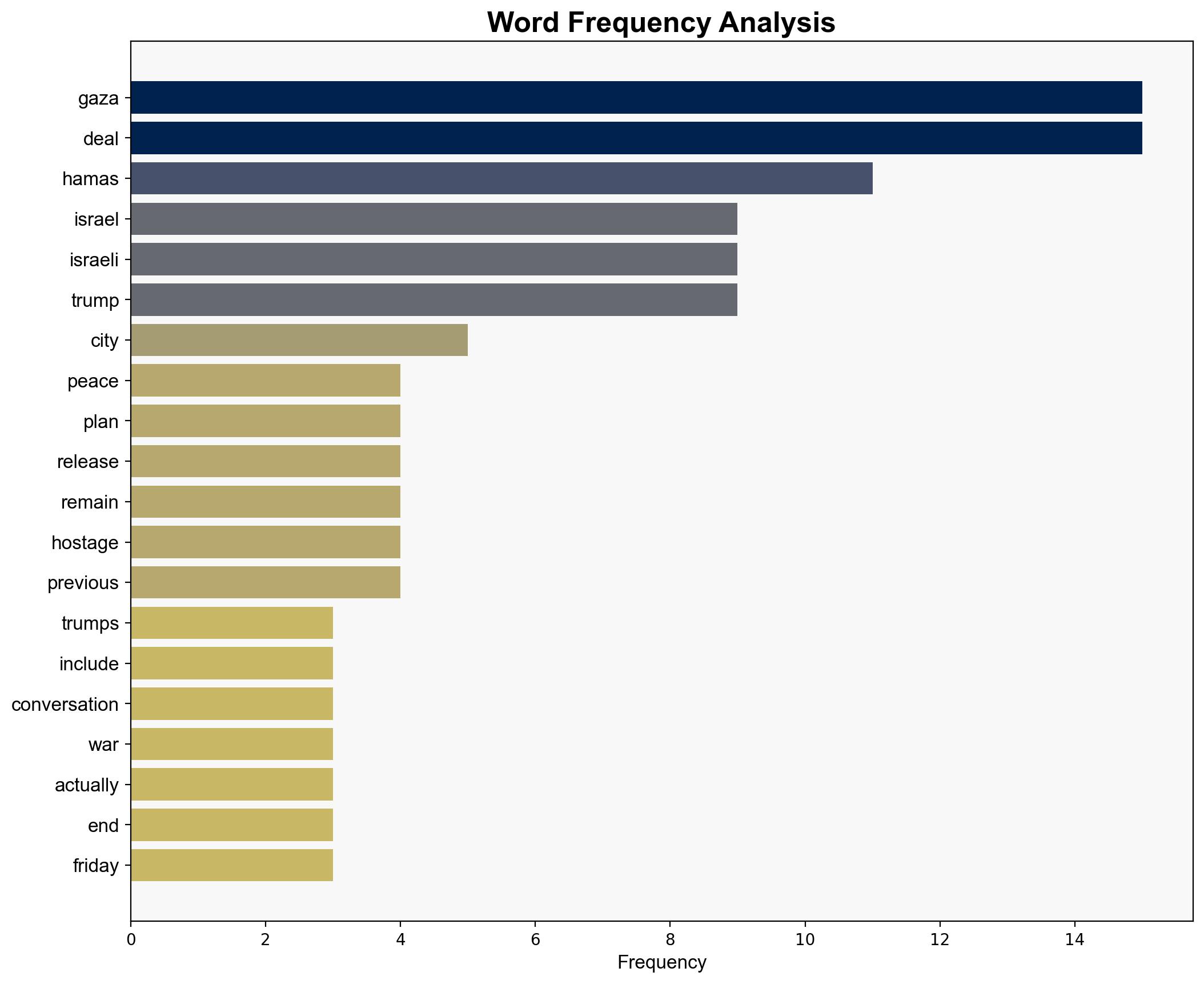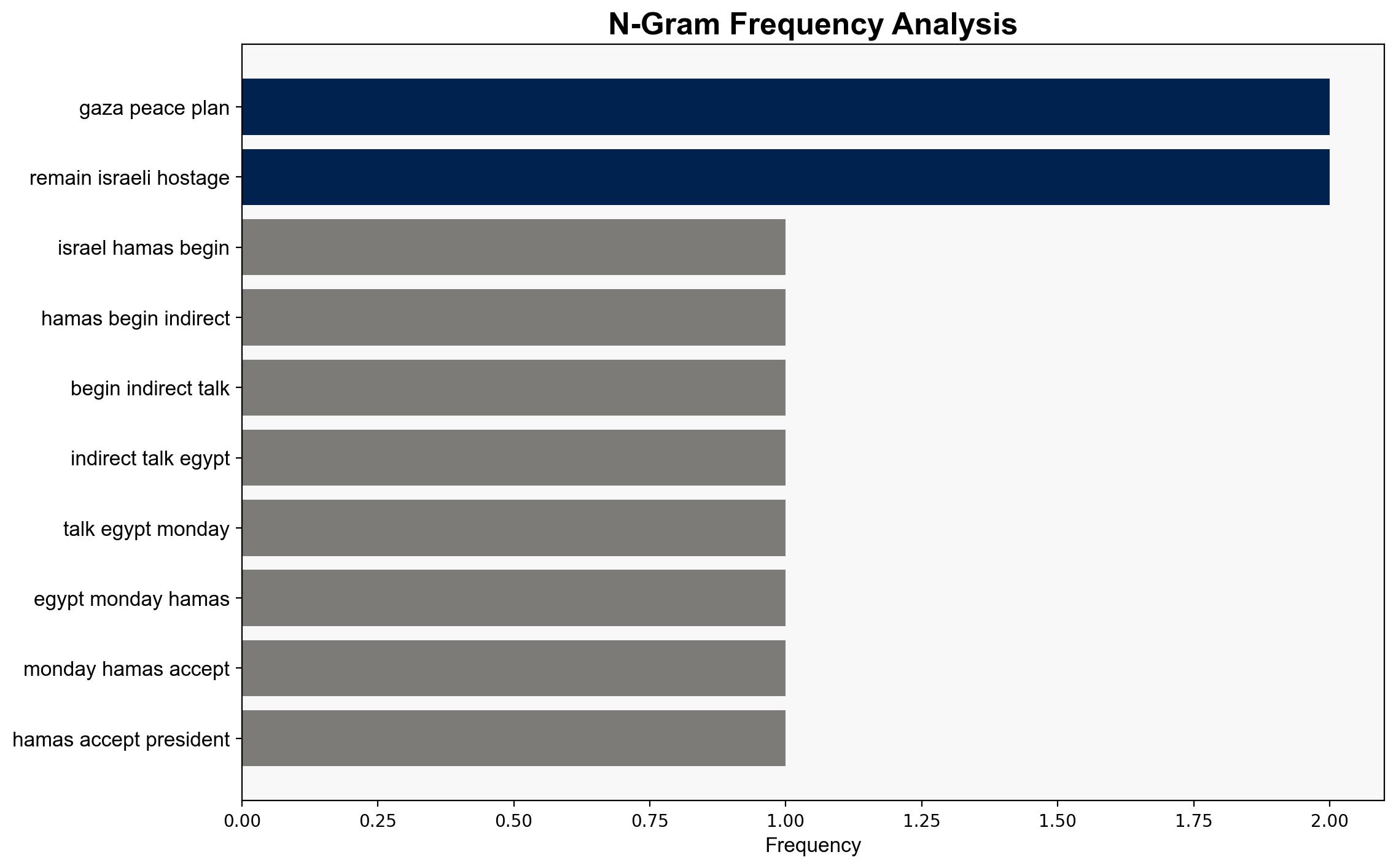Is Israels war in Gaza actually about to end – Vox
Published on: 2025-10-06
Intelligence Report: Is Israel’s war in Gaza actually about to end – Vox
1. BLUF (Bottom Line Up Front)
The most supported hypothesis is that the war in Gaza is unlikely to end imminently due to unresolved issues and skepticism about the peace plan’s viability. Confidence level: Moderate. Recommended action: Monitor ongoing negotiations and prepare for potential escalation if talks fail.
2. Competing Hypotheses
Hypothesis 1: The war in Gaza is about to end due to successful negotiations facilitated by international actors, leading to a comprehensive peace plan.
– Supporting Evidence: Indirect talks have begun, and there is international pressure, including from the Trump administration, to reach a deal. Hamas has shown willingness to discuss terms, including the release of hostages.
– Contradictory Evidence: Previous attempts have failed, and there are significant unresolved issues, such as Hamas’ disarmament and governance.
Hypothesis 2: The war in Gaza will continue due to fundamental disagreements and lack of trust between parties, leading to a breakdown in negotiations.
– Supporting Evidence: Skepticism from Israel regarding Hamas’ intentions, the complexity of the issues at hand, and the history of failed negotiations suggest a low likelihood of success.
– Contradictory Evidence: The involvement of international mediators and some willingness from both sides to engage in talks could lead to a breakthrough.
3. Key Assumptions and Red Flags
– Assumptions: Both parties are negotiating in good faith and are willing to make necessary concessions. International pressure will be sufficient to drive a resolution.
– Red Flags: Hamas’ history of using negotiations to buy time, Israel’s security concerns, and the lack of a clear, enforceable timeline for withdrawal and disarmament.
– Blind Spots: The potential influence of external actors not directly involved in the negotiations, such as regional adversaries or internal political pressures within Israel and Hamas.
4. Implications and Strategic Risks
– Implications: A successful peace plan could stabilize the region and improve humanitarian conditions in Gaza. Failure could lead to renewed violence, increased regional instability, and further humanitarian crises.
– Strategic Risks: Escalation of conflict if talks fail, potential for increased involvement of external actors, and the risk of undermining international credibility if the peace plan collapses.
5. Recommendations and Outlook
- Continue diplomatic engagement and support for international mediators to facilitate negotiations.
- Prepare contingency plans for potential escalation, including humanitarian aid and conflict mitigation strategies.
- Scenario Projections:
- Best Case: Successful peace agreement leading to a phased withdrawal and improved stability.
- Worst Case: Breakdown of talks, leading to intensified conflict and regional destabilization.
- Most Likely: Protracted negotiations with intermittent ceasefires and continued tension.
6. Key Individuals and Entities
– Donald Trump
– Benjamin Netanyahu
– Jared Kushner
– Tony Blair
– Hamas leadership
7. Thematic Tags
national security threats, regional focus, conflict resolution, international diplomacy





